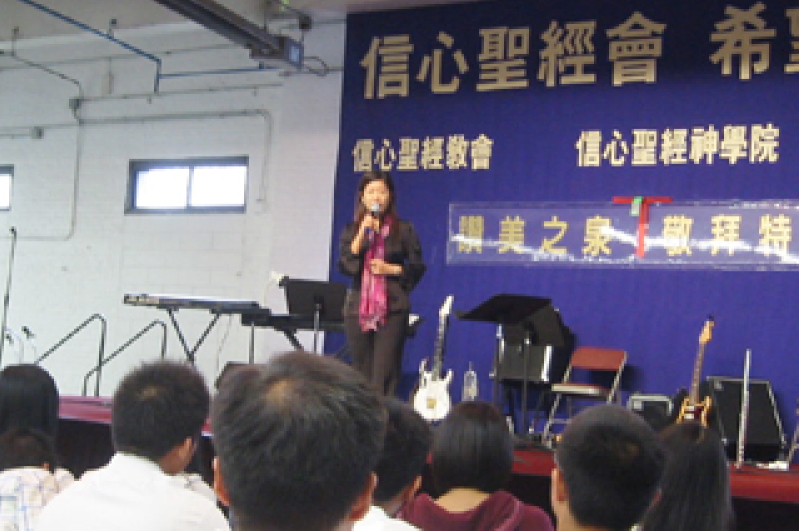
Concluding their tour at the Chinese evangelical churches in New York, Stream of Praise International, a popular Chinese Christian contemporary music ministry, brought a praise and worship performance as well as a seminar to help those in music ministries to develop their worship abilities.
The founder and director of Stream of Praise International Rev. Sandy Yu began by sharing what’s called an “E” worship. “E” is the acronym for Extravagant and Encounter: “Unreserved worship” and “Worship face to face with God.” In addition, she shared that these are two of the important steps to a worship role and to lead good worships.
To worship without reserve means to worship from the heart and to worship with passion, which is revealed outwardly as singing out loud, raising both hands, clapping, and even dancing, etc,.
Yu said that this type of worship shows the worshipper lying prostrate before the Lord, devoting his entire body and mind; meanwhile, the blessings of God can be transmitted and the victory of the Lord’s cross can be proclaimed.
Furthermore, worship without reserve will entail many motions, but they are movements stemming from the heart of the worshipper. Therefore, it is not just worship in form, nor does it have any direct relationship to being Charismatic.
Then, Yu said that to worship face to face with God shows that the worshipper is truly experiencing God through worship. The worshippers, in particular the worship leaders, should strive their best to make the worship face to face with God. Otherwise, no matter how extravagant the worship may be, it is all useless.
Lastly, worship is to come before God to have a conversation and to gain strength from the Lord, explained SOP founder.
[Editor's note: reporter Quan Wei in New York contributed to this report.]






